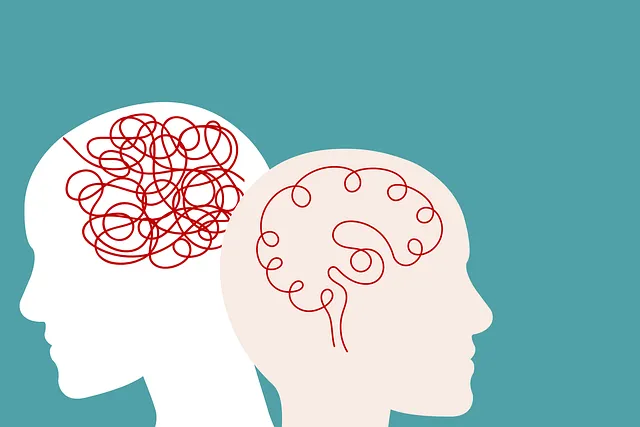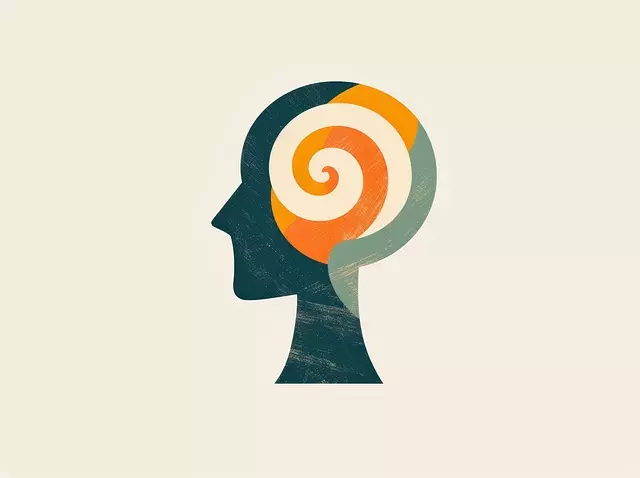The media's portrayal of mental health significantly impacts public perception, with positive representations encouraging support for centers like the Kaiser Permanente Mental Health Access Center in Arvada. Conversely, negative portrayals can perpetuate stigma and hinder access to care. This issue is crucial for healthcare provider burnout prevention, trauma support, and stigma reduction efforts. Leading initiatives, such as those at the Kaiser Permanente center, promote inclusive narratives through campaigns, workshops, and storytelling, fostering empathy, destigmatizing mental illness, and improving community support for better mental health outcomes. Media creators can collaborate with experts to ensure responsible depictions, incorporating diverse stories to normalize experiences and encourage well-being conversations. Community engagement, like that offered by the Arvada center, breaks down barriers, enhances access, and fosters understanding, ultimately normalizing mental health discussions.
In today’s media landscape, accurate representation of mental illness is crucial for fostering understanding and improving mental health perceptions. This article explores how media can challenge stigmatized narratives and impact public awareness. We delve into successful initiatives like Kaiser Permanente’s Mental Health Access Center in Arvada, promoting positive representations. Through storytelling and community engagement, we examine strategies to empower conversations around mental well-being, ensuring a more nuanced and compassionate understanding of mental illness.
- Understanding the Impact of Media Portrayal on Mental Health Perception
- Kaiser Permanente's Approach to Promoting Positive Mental Health Representation
- The Role of Storytelling in Challenging Stigmatized Narratives
- Strategies for Media Creators to Enhance Accurate Mental Illness Depictions
- Community Engagement: Empowering Conversations Around Mental Well-being
Understanding the Impact of Media Portrayal on Mental Health Perception

The media plays a powerful role in shaping public perception about mental health, often influencing how individuals with psychological disorders are viewed and treated. Positive and accurate representation can foster understanding, reduce stigma, and encourage those struggling to seek Kaiser Permanente mental health access center Arvada services. Conversely, negative or stereotypical portrayals can perpetuate fear, judgment, and misinform the public, hindering support for individuals dealing with mental illness. This is particularly concerning given the prevalence of mental health challenges, emphasizing the need for responsible media representation.
Understanding the impact of media portrayal is crucial in addressing Burnout Prevention Strategies for Healthcare Providers and Trauma Support Services. By promoting more inclusive narratives that reflect the diversity of experiences within the mental health community, we can work towards Mental Illness Stigma Reduction Efforts. This shift in media presentation may lead to increased empathy, improved access to care, and ultimately, better support systems for those facing mental health issues.
Kaiser Permanente's Approach to Promoting Positive Mental Health Representation

Kaiser Permanente, a renowned healthcare organization, has taken a proactive step towards addressing mental health issues by implementing a comprehensive approach through its Mental Health Access Center in Arvada. This center serves as a hub for promoting positive representation and understanding of mental wellness. By providing accessible resources, they aim to destigmatize mental illness and improve overall public awareness.
The organization focuses on various initiatives such as developing engaging public awareness campaigns and organizing stress management workshops. These efforts cater to a diverse range of audiences, offering valuable insights into recognizing and managing mental health challenges effectively. Through these programs, Kaiser Permanente empowers individuals to take control of their mental wellness and fosters a supportive community.
The Role of Storytelling in Challenging Stigmatized Narratives

Storytelling has emerged as a powerful tool to challenge and change narratives surrounding mental illness. By presenting authentic and complex characters with genuine struggles, media can help break down stereotypes often associated with people experiencing depression or other mental health conditions. This shift in representation encourages empathy and understanding from audiences, fostering an environment where individuals feel less isolated and more likely to seek support.
For instance, initiatives like the Kaiser Permanente Mental Health Access Center in Arvada focus on providing accessible resources and promoting open conversations about mental well-being. Through film, literature, and other creative mediums, stories can highlight diverse experiences of mental health, including recovery journeys, cultural perspectives, and the impact of systemic barriers. This approach not only contributes to Depression Prevention but also enhances Cultural Sensitivity in Mental Healthcare Practice by reflecting and addressing the unique challenges faced by various communities. Well-designed Mental Health Education Programs can further leverage these narratives to equip individuals with the knowledge and skills needed to support themselves and others.
Strategies for Media Creators to Enhance Accurate Mental Illness Depictions

Media creators play a pivotal role in shaping public understanding of mental health issues. To enhance accurate depictions, they can adopt several strategies. Firstly, consulting with mental health professionals like those at Kaiser Permanente Mental Health Access Center Arvada ensures factual representation and avoids harmful stereotypes. Incorporating diverse narratives featuring characters from various backgrounds struggling with different mental health conditions helps to normalize these experiences.
Additionally, media creators can emphasize the human story behind mental illness, showcasing the challenges individuals face while also highlighting their resilience. This approach fosters empathy among viewers and encourages open conversations about mental well-being. By integrating self-esteem improvement themes and mental illness stigma reduction efforts into storylines, they can contribute to a more supportive societal environment. Moreover, portraying effective conflict resolution techniques can offer valuable insights into managing mental health crises.
Community Engagement: Empowering Conversations Around Mental Well-being

In addressing mental illness representation in media, community engagement plays a pivotal role. Initiatives like the Kaiser Permanente Mental Health Access Center in Arvada exemplify this by fostering open conversations around mental well-being. These centers serve as safe spaces where individuals can access resources, learn about various mental health conditions, and discover effective communication strategies to navigate sensitive topics.
Through organized workshops, support groups, and trauma support services, community engagement empowers residents with resilience-building tools. By breaking down barriers and stereotypes associated with mental illness, these efforts encourage early intervention and promote better outcomes for those in need. This proactive approach not only improves access to mental health care but also cultivates a culture of empathy and understanding within the community.
In challenging the stigmatized narratives surrounding mental illness, media representation plays a pivotal role. By adopting strategies that emphasize accurate and compassionate storytelling, as seen in initiatives like Kaiser Permanente’s Mental Health Access Center in Arvada, we can foster more inclusive communities. Engaging with these issues through community conversations not only enhances mental well-being but also ensures media creators depict mental illness with sensitivity and authenticity. Together, these efforts contribute to a more nuanced understanding of mental health, breaking down barriers and promoting support for those facing these challenges.



